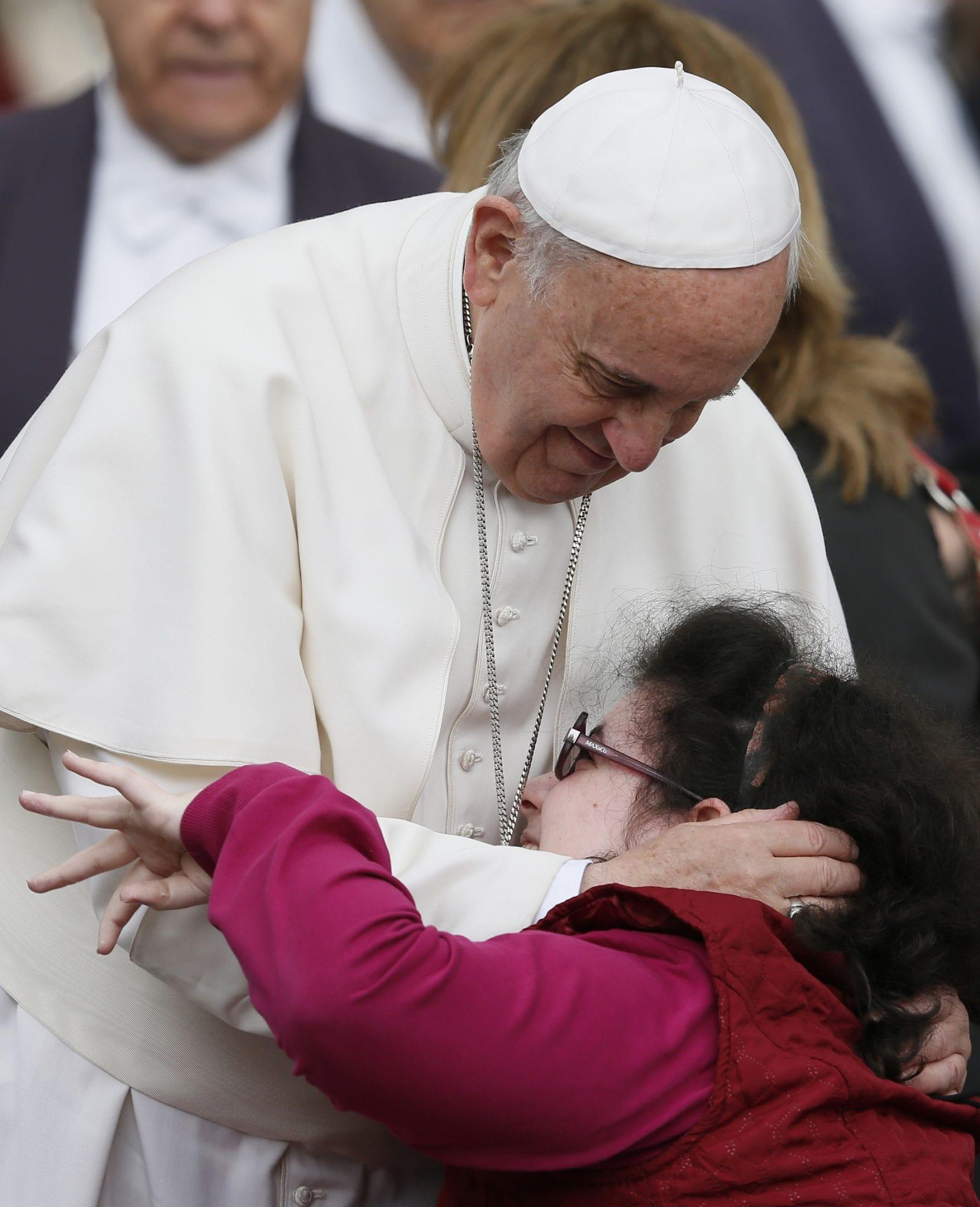ROME – They’re often the first people he greets when holding an audience, so it came as no surprise Tuesday when Pope Francis released a message for the World Day of Persons with Disabilities, calling for them to be fully integrated in society, not only through legislation but a much-needed change in mentality.
“Have the courage to give a voice to those who are discriminated against because of their disability, because unfortunately in some countries, even today, it is difficult to recognize them as persons of equal dignity, as brothers and sisters in humanity,” Francis wrote in a message released by the Vatican Tuesday morning.
In his letter, the pope urged the world to recognize that “every person with a disability, even with complex and serious disabilities,” is a “unique contribution to the common good.”
The pontiff also denounced discrimination against people with disabilities, urging society to “develop antibodies against a culture” that divides people into first and second classes: “This is a social sin,” he wrote.
“On the anniversary of the World Day of Persons with Disabilities, we renew our gaze of faith that sees in every brother and sister the presence of Christ himself, who considers every gesture of love for one of our least brothers as made for himself,” Francis said.
In his letter, the pope also mentioned the elderly, calling them “hidden exiles,” who live within our homes, families and societies.
“I am thinking of people of all ages, especially the elderly who, also because of their disability are sometimes felt as a burden, as ‘bulky presences,’ and risk being discarded,” he wrote.
The service and commitment to people with disabilities, Francis argued, determines “the degree of civilization of a nation.”
A pope known for his care for those on the outskirts of society, Francis has often spoken about people with disabilities, and highlighted children with Down syndrome, giving them a ride in the popemobile.
The embrace he gave to Vinicio Riva, a man heavily disfigured due to neurofibromatosis, a disease that leads to hearing and vision loss, heart and blood vessel complications, and severe disability from nerve compression by tumors, is often considered one of the most iconic images of the early days his pontificate.
In June 2018, Francis welcomed a delegation from the “Special Olympics” organization, which was celebrating the 50th anniversary of its foundation. He said at the time that “the Lord reserves a special place in His heart for whoever has a disability, and so does the Successor of Peter.”
In Oct. 2017, as he was addressing participants of the international conference titled “Catechesis and Persons with Disabilities: A Necessary Engagement in the Daily Pastoral Life of the Church,” he condemned what he called a “eugenic tendency” to prevent babies found by prenatal tests to have imperfections from being born, saying it’s part of a strong prejudice against people with disabilities.
“At a cultural level, there are still expressions that undermine the dignity of [people with disabilities], due to the prevalence of a false conception of life,” he said at the time. “An often narcissistic and utilitarian vision leads, unfortunately, many to consider people with disabilities as marginalized, without seeing in them a multiform human and spiritual wealth,” he added.
RELATED: Rome conference fears Down syndrome may be in final generation
On Tuesday, he doubled down on his message by sending a tweet to his over 40 million followers, saying: “Today we renew our commitment so that every disabled person may share their gifts with the community to which they belong and in which they take part.”
The UN- sponsored International Day of Disabled Persons has been observed since 1992. The theme for this year’s day is “Promoting the participation of persons with disabilities and their leadership: taking action on the 2030 Development Agenda.”
The pope has been a vocal opponent of abortion of the disabled, repeatedly denouncing the “eugenic tendency” behind eliminating unborn babies with handicaps, which reveals a “narcissistic and utilitarian vision.”
Follow Inés San Martín on Twitter: @inesanma
Crux is dedicated to smart, wired and independent reporting on the Vatican and worldwide Catholic Church. That kind of reporting doesn’t come cheap, and we need your support. You can help Crux by giving a small amount monthly, or with a onetime gift. Please remember, Crux is a for-profit organization, so contributions are not tax-deductible.













